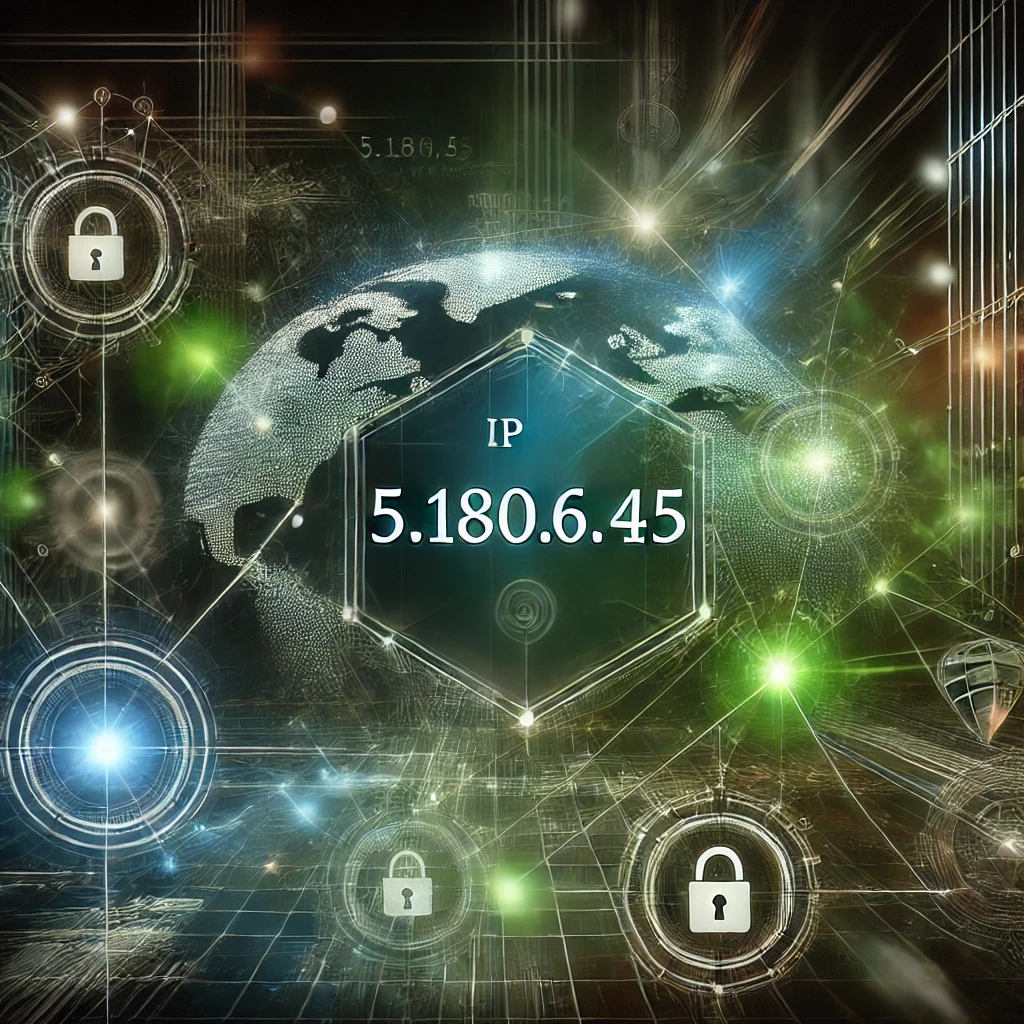If you’ve stumbled upon 5.180.6.45, you’re likely wondering, what is it, and why should I care?
You’re not alone.
This IP address might seem like a random string of numbers, but it’s connected to real-world concerns, especially when it comes to security and online privacy.
When people see an IP address like 5.180.6.45, a lot of questions pop up: Who controls this IP? Is it safe to interact with?
Before jumping to conclusions, let’s break it down in everyday terms.
What is 5.180.6.45?
Every device connected to the internet has an IP address, and 5.18 0.6.45 is no different.
It’s a unique identifier that lets computers and servers find each other in the massive network we call the internet.
Think of it like a street address for your house—it tells people where you live, but online.
5.180.6.45 might be assigned to a particular user, a website, or even a whole organization.
But here’s where things get interesting: this specific IP has been flagged for suspicious activity in some cases.

Why Should You Be Concerned About 5.180.6.45?
If you’ve encountered 5.18 0.6.45, especially in your server logs or network, it might be worth a closer look.
There have been instances where IP addresses like this have been associated with spam, botnet activity, or even hacking attempts.
Real story: A website admin once noticed a spike in traffic from 5.18 0.6.45.
At first glance, it looked like any other visitor.
But soon, the admin realized this traffic was trying to break into the site’s backend.
Scary, right?
If you’re managing a site or server, it pays to keep an eye on IP addresses like this to avoid unwanted intrusions.
How Do You Check If 5.180.6.45 Is a Risk?
You don’t need to be a tech genius to check if 5.18 0.6.45 is safe.
There are simple tools online that let you do a basic IP lookup.
A few clicks, and you can find out:
- Where the IP is located.
- If it’s on any spam blacklists.
- What type of activity is linked to it.
Websites like IPVoid and AbuseIPDB are great for checking the reputation of 5.180.6.45.
If you see red flags, take action.
Block the IP if it’s causing trouble.
It’s better to be safe than sorry when it comes to securing your online space.
What to Do If You Notice 5.180.6.45 in Your Logs?
Spotting 5.180.6.45 in your logs can be alarming, especially if you’re unsure what it’s doing.
Here’s a quick step-by-step on what you can do:
- Check the traffic – Is 5.18 0.6.45 just visiting your site, or is it making repeated attempts to access sensitive areas?
- Run a blacklist check – Use a tool like Spamhaus to see if the IP is flagged.
- Set up firewall rules – If the IP keeps causing issues, block it from accessing your server.
- Monitor for further activity – Keep an eye on your logs to see if 5.180 .6.45 reappears or if other suspicious IPs start showing up.

Can 5.180.6.45 Be a Good Thing?
Not all interactions with 5.180.6.45 are negative.
Sometimes, the IP might just belong to a regular user who’s browsing the web, completely unaware of the concerns surrounding their IP.
But in most cases, caution is key.
If you’re running a website, it’s always smart to monitor who’s visiting, especially if an IP has a dodgy history.
FAQs About 5.180.6.45
1. Is 5.180.6.45 always bad?
Not necessarily. While some users report issues with this IP, it doesn’t mean every instance is harmful. Always investigate before jumping to conclusions.
2. How do I block 5.180.6.45 from my server?
You can block IP addresses using your server’s firewall settings. If you’re using a platform like WordPress, there are plugins that can make this process easier.
3. What should I do if I see 5.180.6.45 in my logs?
Check its activity. If it’s making repeated login attempts or trying to access sensitive data, it’s time to block it.
4. Is it possible for my IP to be confused with 5.180.6.45?
Unlikely. Every IP address is unique, so there shouldn’t be any confusion.
5. Can I report 5.180.6.45 if it’s causing issues?
Yes, if you suspect malicious activity, you can report the IP to sites like AbuseIPDB to alert other users.
Final Thoughts on 5.180.6.45
5.18 0.6.45 might seem like just another IP address, but for those in the know, it’s one that sparks attention.
Whether you’re dealing with it on your own server or just curious, understanding the risks is crucial.
Stay informed.
Keep your systems safe.
And remember, not every IP is trouble—but it’s always good to stay cautious.
If 5.180.6.45 ever shows up in your logs, you’ll know exactly what to do.
By taking these small steps, you can avoid big headaches.
So, watch out for 5.18 0.6.45 and keep your online space secure.


